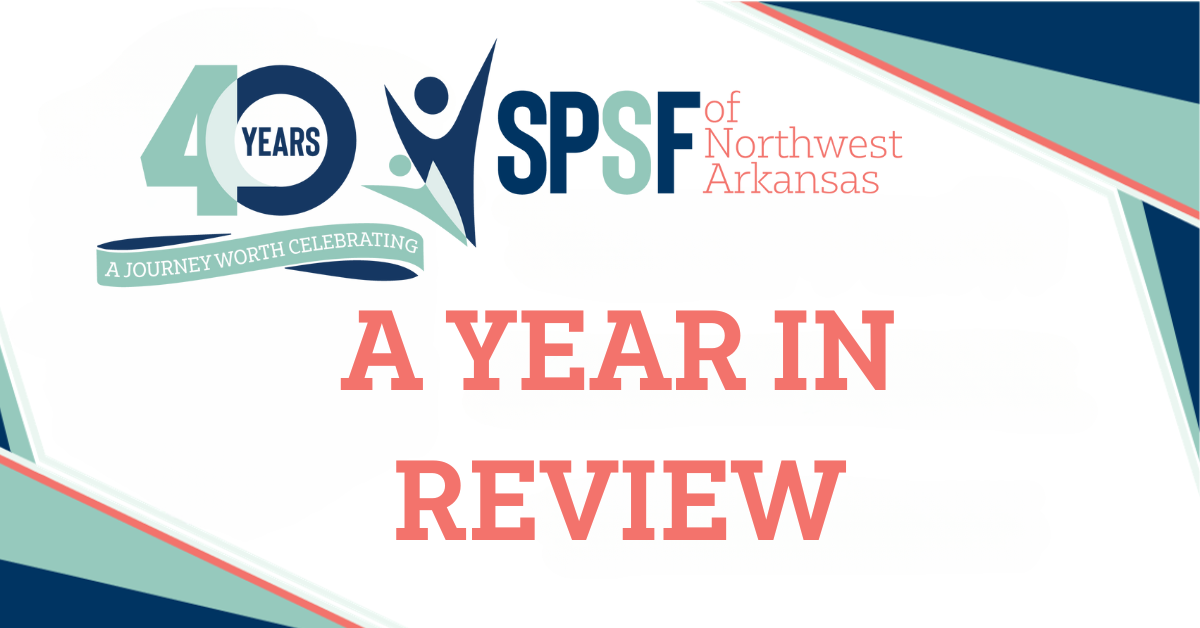Recently Current Recipient Dakota Evans Shared His Story with SPSFNWA Donors and Supporters at the 40th Anniversary Garden Party.
Dakota Evans Story
Dakota had always been a hard worker, but after his return from a deployment to the Middle East in 2022, something inside him shifted. Laboring for most of his adult life had kept him going, but it hadn’t given him the fulfillment he needed. He wanted to do more, to make a real difference. Luckily, his best friend saw that drive in him and encouraged him to enroll in the construction technology program at NWACC. It seemed a practical choice then, but Dakota soon realized his heart was pulling him elsewhere. By the next semester, he had switched his focus to social work, driven by a desire to give back to the community that had always been there for him.
His journey as a single father had begun years earlier. A new soldier in the Arkansas Army National Guard, he had just welcomed his first child—a beautiful baby girl—into the world. Two years later, his son was born, but the happiness of those early days quickly faded. His children’s mother struggled with addiction, and soon, Dakota found himself raising them on his own. Lost and overwhelmed, he was thrust into a world of responsibility he wasn’t prepared for. But he knew he had to push through—for his kids.
His first experience with the family court system was a frustrating one. Though he and his ex had agreed on shared custody and no child support, a judge ruled that Dakota’s slightly higher income meant he should pay. It made no sense—he was already fully supporting the children. The financial strain that followed made things even harder, and as his relationship with his ex worsened, Dakota discovered that she had fallen deeper into her addiction, putting their children at risk.
Desperate to protect them, Dakota spent countless nights driving around town, searching for his kids. The stress and fear took a toll on him, and he lost his job at Glad Manufacturing, one of the most stable positions he’d ever had. It was a devastating blow, but Dakota didn’t have time to dwell on it. His focus was on the well-being of his children.
As the months passed, his ex disappeared more and more from their lives. What started as a week of missed visits turned into two, then stretched into a month and eventually a year. Dakota’s daughter, too young to fully understand, would ask heartbreaking questions— “Why doesn’t Mom want me? Is it my fault?” Each time, Dakota reassured her, telling her it wasn’t her fault. But the pain of those conversations weighed heavily on him.
Eventually, Dakota went back to court to seek full custody. His ex didn’t show up, spiraling further into her addiction. The judge granted Dakota sole custody, and he felt like he had control for the first time in years. He could finally protect his children from the chaos threatening their lives.
Now, Dakota’s children were thriving. His daughter was 8, his son 6, and they had a younger brother who had joined the family. Dakota, too, had found stability. He had served in the National Guard for over ten years, completed an overseas tour of duty, and was enrolled in ROTC. He was pursuing his Bachelor of Social Work at the University of Arkansas, with dreams of earning his Master’s degree and finding his place in the world of social work.
Along the way, Dakota had realized a few things that were essential to him: his family, his military career, and his village. The old saying, “It takes a village to raise a family,” had never been more true in his life. His village was made up of close friends, family, and the people who had supported him when he needed it most. The Single Parent Scholarship Fund had been a crucial part of that support, providing him with scholarships that made all the difference. One recent back-to-school scholarship had allowed him to buy new clothes and supplies for his children during a time when he had been struggling to make ends meet.
As Dakota reflected on his journey, he felt a deep sense of gratitude for the people who had helped him along the way. Without them—without his village—he knew he wouldn’t have come this far.






